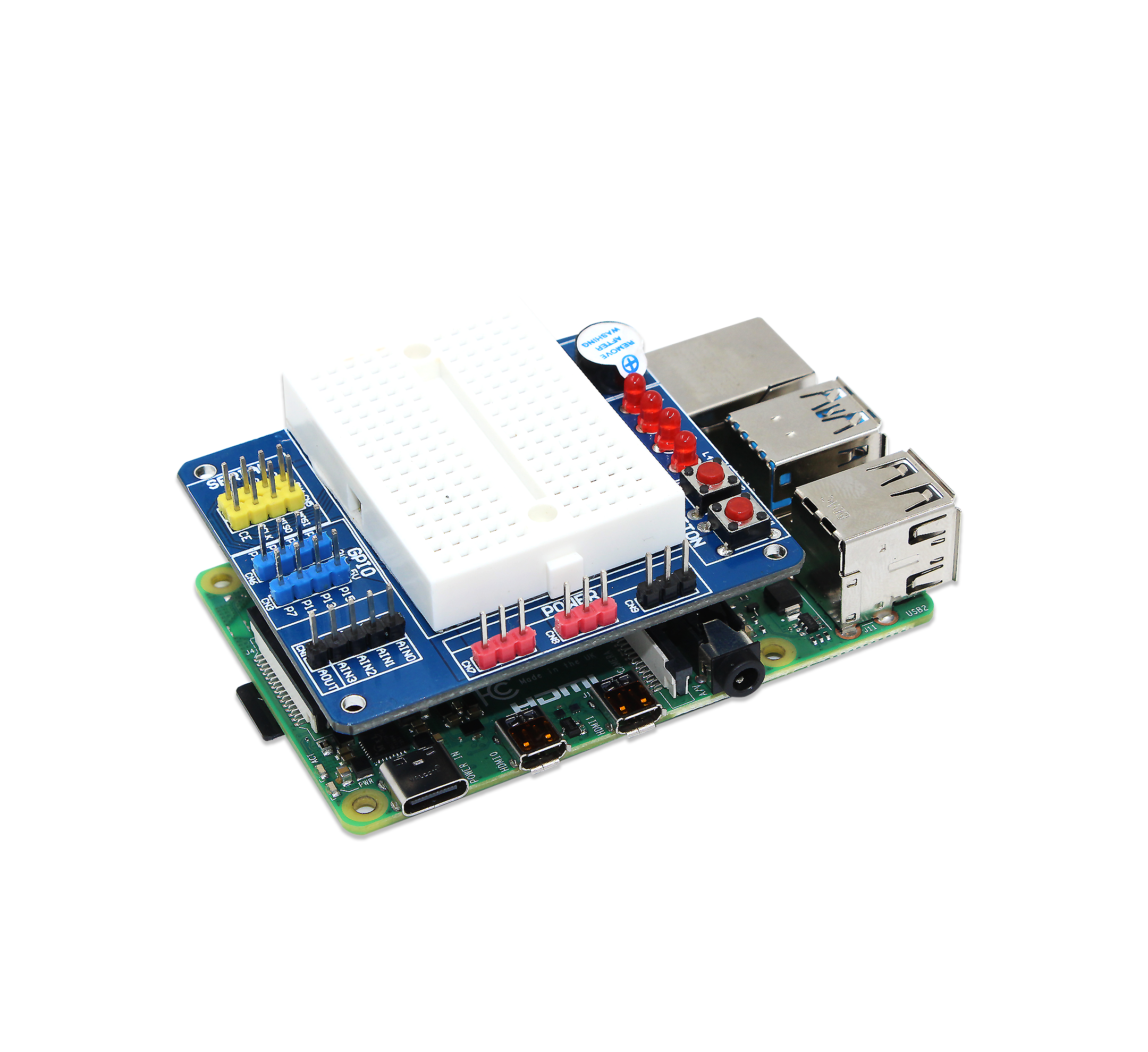pigpio is a library for the Raspberry which allows control of the General Purpose Input Outputs (GPIO). pigpio works on all versions of the Pi.
I have use i2c(example), spi
 abyz.me.uk
abyz.me.uk
 abyz.me.uk
abyz.me.uk
get DIO hat use I2C and write text to I2c LCD
breadpi

 shop.sb-components.co.uk
shop.sb-components.co.uk
I have use i2c(example), spi
pigpio library
Raspberry Pi Reg. C GPIO library and Python GPIO module and shell command utilities to control the GPIO, including SPI, I2C, and serial links.
pigpio library
Raspberry Pi Reg. C GPIO library and Python GPIO module and shell command utilities to control the GPIO, including SPI, I2C, and serial links.
get DIO hat use I2C and write text to I2c LCD
breadpi

BreadPi - Multipurpose HAT for Raspberry Pi
BreadPi Breadboard HAT for Raspberry Pi is a multi-purpose HAT (Hardware Attached on Top) that consists of a mini breadboard on top, ADC, a Programmable Buzzer, Programmable LEDs, push buttons, and 5V tolerant inputs at the Operating Voltage of 3.3V DC at a single place.
 shop.sb-components.co.uk
shop.sb-components.co.uk
Attachments
Last edited:
